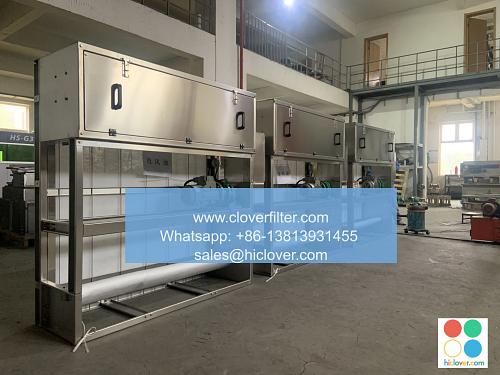The Importance of Training in Air Filter Regulations: A Guide to Compliance

Air filter regulations are a crucial aspect of maintaining good indoor air quality, and compliance is essential for various industries, including heating, ventilation, and air conditioning (HVAC), industrial manufacturing, and healthcare facilities. Training in air filter regulations is vital for ensuring that individuals understand the requirements and can implement them effectively. In this article, we will highlight the importance of training in air filter regulations, discuss the key application areas, and provide a guide to compliance.
Introduction to Air Filter Regulations
Air filter regulations are designed to minimize the risks associated with poor indoor air quality, including respiratory problems, allergies, and infections. The regulations vary depending on the industry, location, and type of facility. For example, OSHA (Occupational Safety and Health Administration) sets standards for indoor air quality in workplaces, while ASHRAE (American Society of Heating, Refrigerating, and Air-Conditioning Engineers) provides guidelines for ventilation and air filtration systems.
Key Application Areas
Training in air filter regulations is essential for various industries, including:
* HVAC contractors who install, maintain, and repair air filtration systems
* Industrial manufacturers who use air filtration systems to control pollutants and particulate matter
* Healthcare facilities who require high-level air filtration to prevent the spread of infections
* Commercial building owners who need to maintain good indoor air quality for occupants
* Environmental consultants who assess and mitigate indoor air quality risks
Benefits of Training in Air Filter Regulations
Training in air filter regulations offers several benefits, including:
* Compliance with regulations and avoidance of fines and penalties
* Improved indoor air quality and reduced risks to occupants
* Increased efficiency and cost savings through proper air filtration system maintenance
* Enhanced reputation and credibility for businesses and organizations
* Better decision-making and problem-solving skills for individuals
A Guide to Compliance
To ensure compliance with air filter regulations, individuals should follow these steps:
1. Familiarize yourself with relevant regulations and standards, such as OSHA and ASHRAE guidelines
2. Understand the types of air filtration systems and their applications, including HEPA filters, activated carbon filters, and UV air purifiers
3. Learn about air filtration system maintenance and troubleshooting techniques
4. Develop a plan for compliance and implement it in your facility or organization
5. Stay up-to-date with changes in regulations and industry developments through continuing education and training programs
Conclusion
Training in air filter regulations is crucial for ensuring compliance and maintaining good indoor air quality. By understanding the regulations, key application areas, and benefits of training, individuals can take the necessary steps to ensure compliance and improve the health and safety of occupants. Remember to stay informed, stay up-to-date, and stay compliant with air filter regulations to avoid risks and ensure a healthy and safe indoor environment. It looks like you’re ready to give me a prompt, but you haven’t typed it out yet! What would you like to talk about or ask me to help with? I can assist with a wide range of topics, from answering questions to generating creative ideas. Go ahead and give me your prompt!

